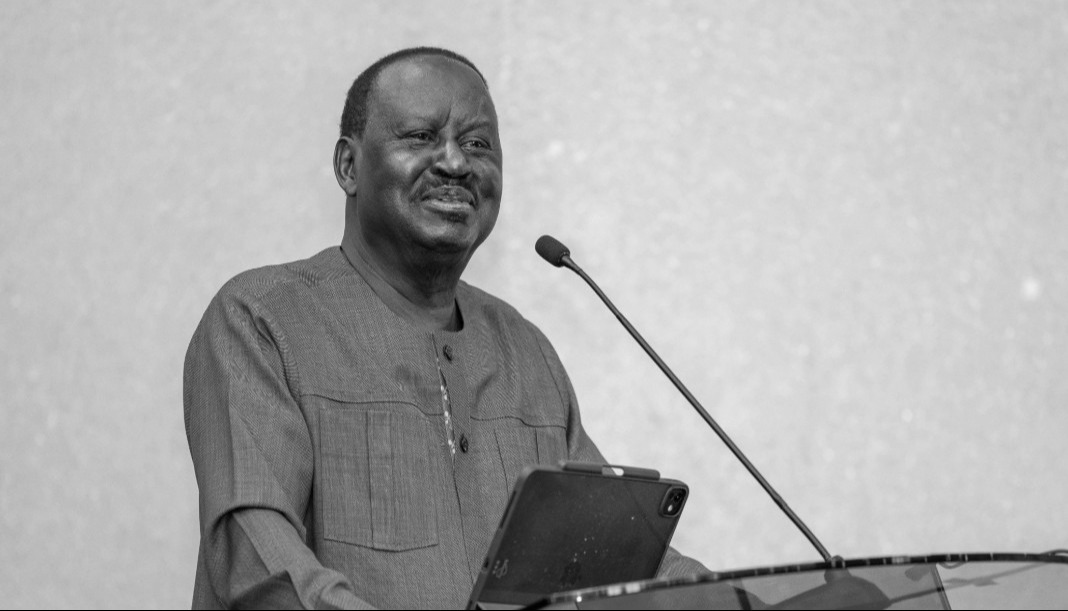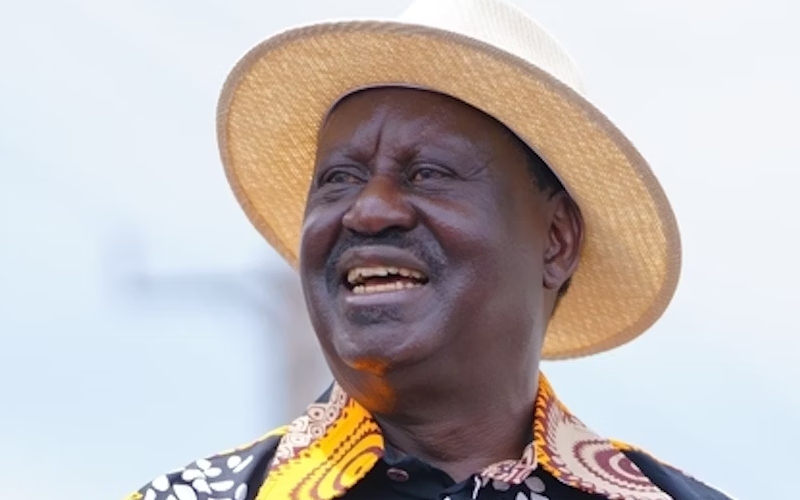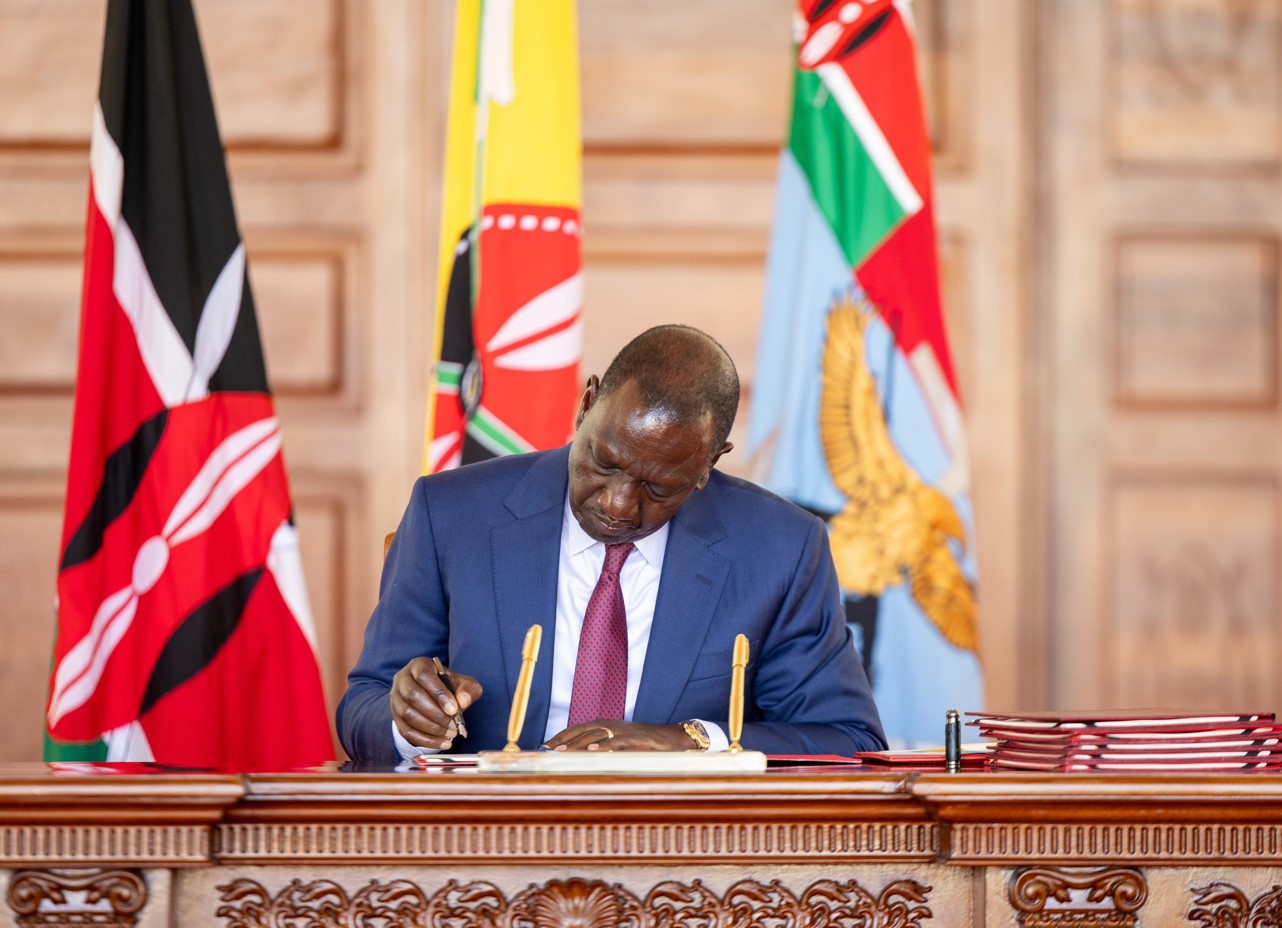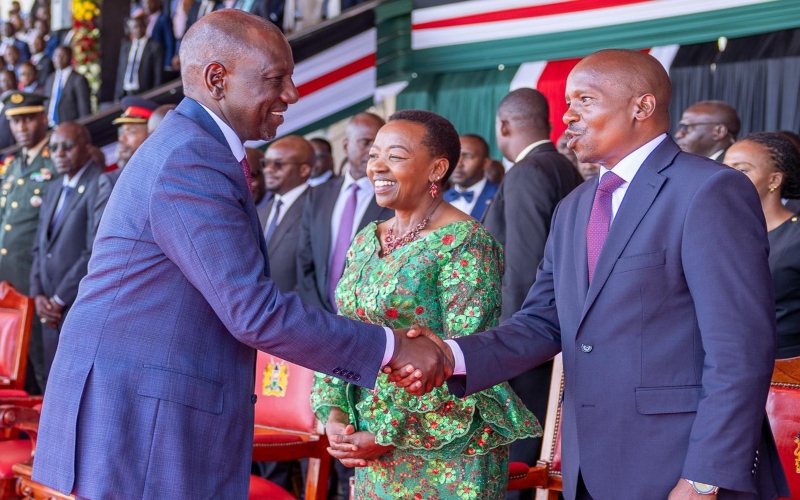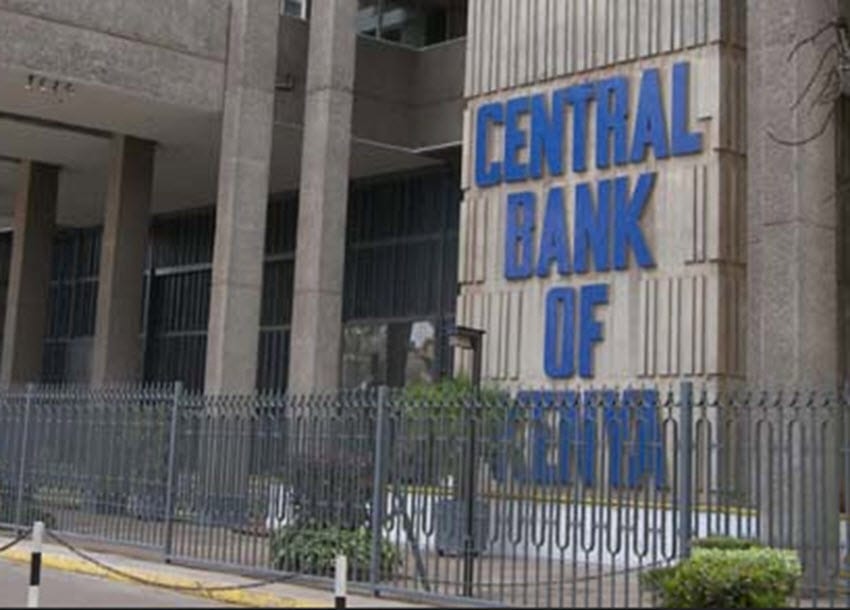Youth battle mental health, unemployment linked to climate change challenges
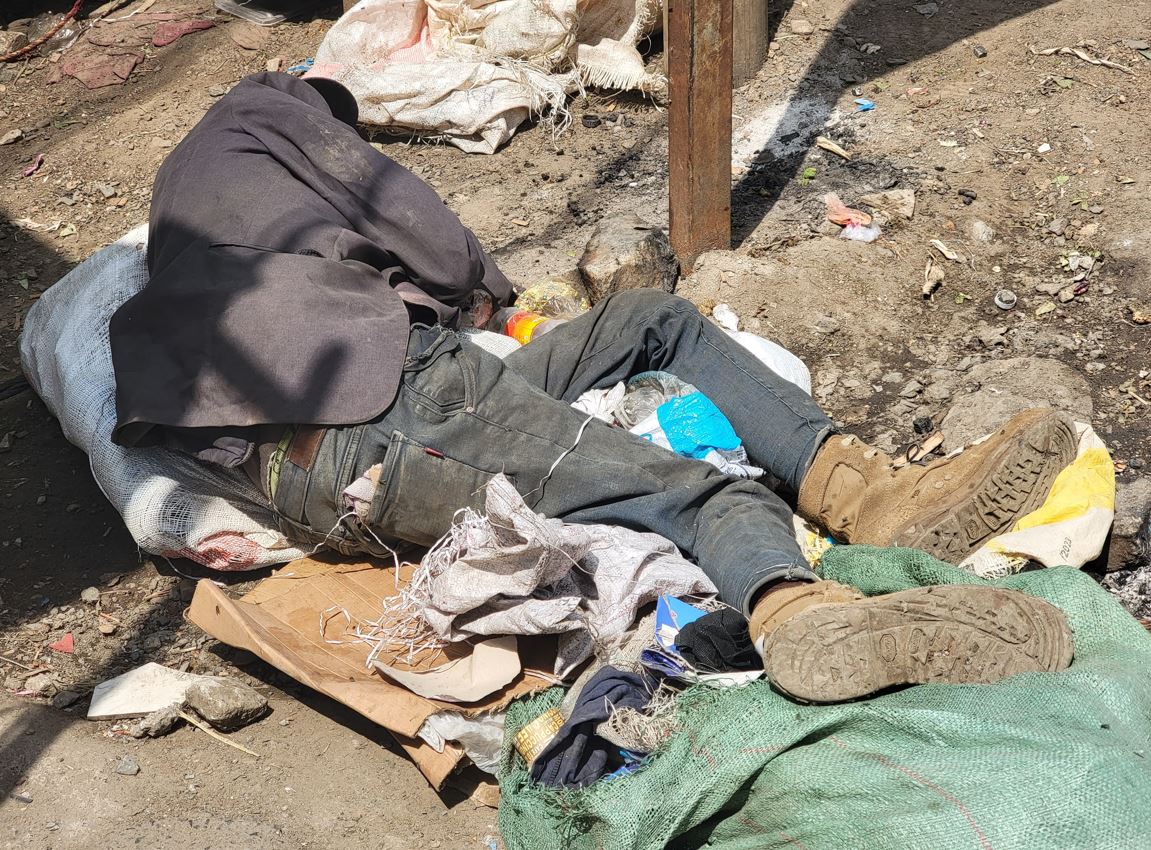
The uncertainty and fear associated with climate change heighten anxiety among young people.
Chewing muguka has become Cliff Ochieng’s constant companion, a small solace in a world that has been challenging for months.
After his house in Majengo, situated on riparian land, was flooded and demolished during the devastating March-May floods that claimed over 250 lives, Ochieng struggled to regain his footing. Now, an open field serves as his home, a bitter reminder of all he has lost.
More To Read
- Renewables overtake coal in global electricity generation
- Why are over 670 million people going hungry?
- Bold, diverse and unstoppable: Girls speak out amid a world in crisis
- Africa’s ‘great green wall’ is stalling: In Senegal very few planted areas show progress
- Africa launches first-ever climate commitment implementation index to track progress
- Climate crisis imperils 43 per cent of world heritage sites, says IUCN
Ochieng, who depends on manual labour, has been hustling for months, even before his home was demolished. The situation has only worsened since then, as many people in the area have been affected. Finding anything meaningful has become increasingly difficult for him, making each day a new challenge.
“Sometimes, when people see us sleeping around here, they assume we’re thieves. But the reality is that most of us are just jobless and homeless, and that number has only increased since the demolition," he says, in an interview with The Eastleigh Voice.
"To keep our minds from wandering into dark places, we find solace in sleep, even if it’s on the cold ground or in doorways. It’s a way to escape the harshness of our reality, if only for a little while," he adds.
Ochieng reflects on how, since losing his home and job, many of his relatives and friends have drifted away, leaving him feeling isolated. With no one to turn to, he prefers to keep to himself, lost in his thoughts.
The spark that once motivated him to push forward has faded, and now the only thing that truly matters is finding enough food to eat—whether it comes from rummaging through trash or the occasional kindness of well-wishers. Each meal, no matter the source, has become a small victory amid his struggles.
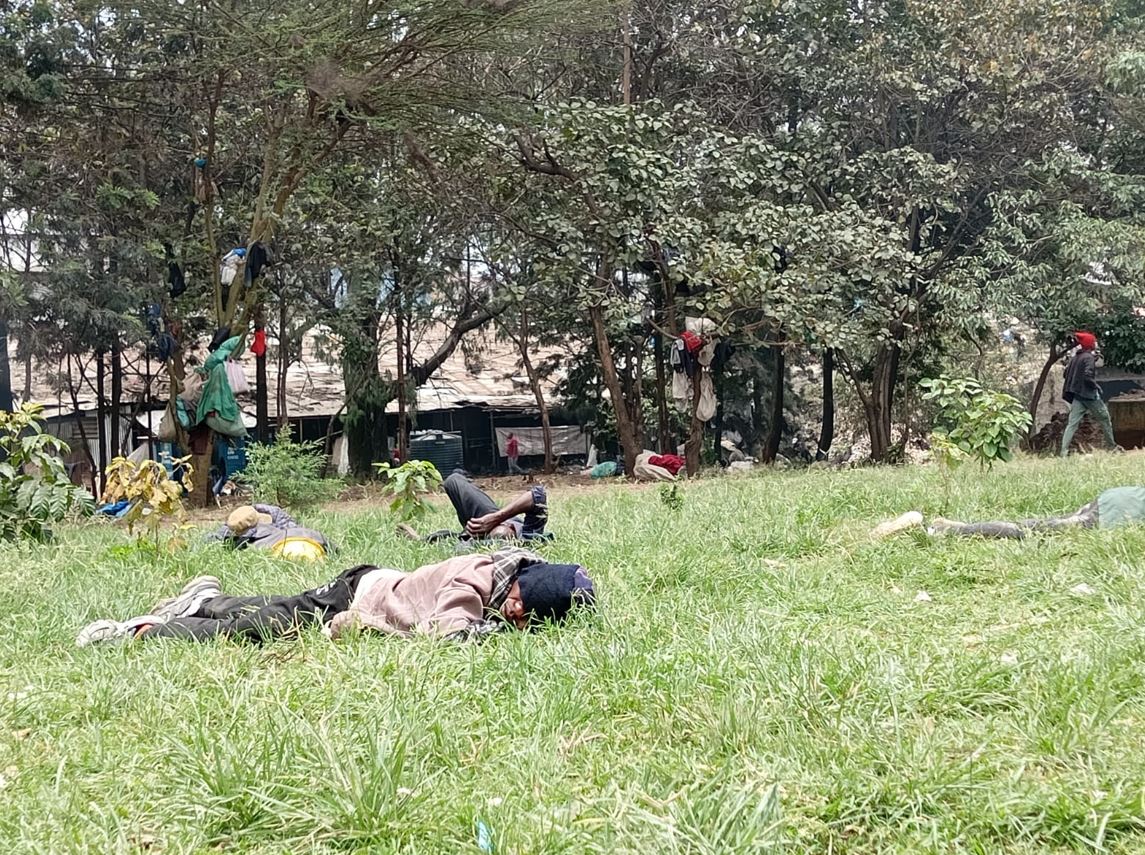 Kamukunji Grounds has continued to offer solace to youths struggling with unemployment or battling mental health. (Photo: Ahmed Shafat)
Kamukunji Grounds has continued to offer solace to youths struggling with unemployment or battling mental health. (Photo: Ahmed Shafat)Kamukunji Grounds has continued to offer solace to youths struggling with unemployment or battling mental health. (Photo: Ahmed Shafat)
“Even though we lived on riparian land for years, we weren't causing any harm. I was born in this area and have lived here all my life; I have never seen houses submerged like that, with everything swept away by the rain. We had never seen such floods in this area before; this was the first time. The demolition happened without any solutions offered, and now, as young people, we’re left to navigate this mess on our own. A lot of us are just tired of trying to figure it all out," he laments.
Jeff Wahome, a victim of the recent floods and demolitions, seeks solace at Kamukunji Grounds when he is unable to secure daily work. Since losing everything and relocating to higher ground, his expenses have risen significantly.
“Things have become incredibly hard. I’ve never fully recovered from the floods that swept through my home in Kinyago, and moving on has been a struggle without a stable job to rely on,” he shares. With barely anything left in his possession, the weight of his situation has taken a toll on him, and he’s lost the motivation to work. His dreams feel shattered.
“It’s tough when you’ve worked so hard, doing all sorts of jobs to get by, only to wake up one day and realise you’ve lost everything. No one seems to care. The government tells you to move on without any consideration for how you’ll cope or what will happen next. It’s sad," he adds.
Like Ochieng, Jeff turned to chewing muguka for comfort, a way to lift his spirits. It allows him to escape his harsh reality, providing a moment of relief even when he has to sleep outside because he can’t afford rent.
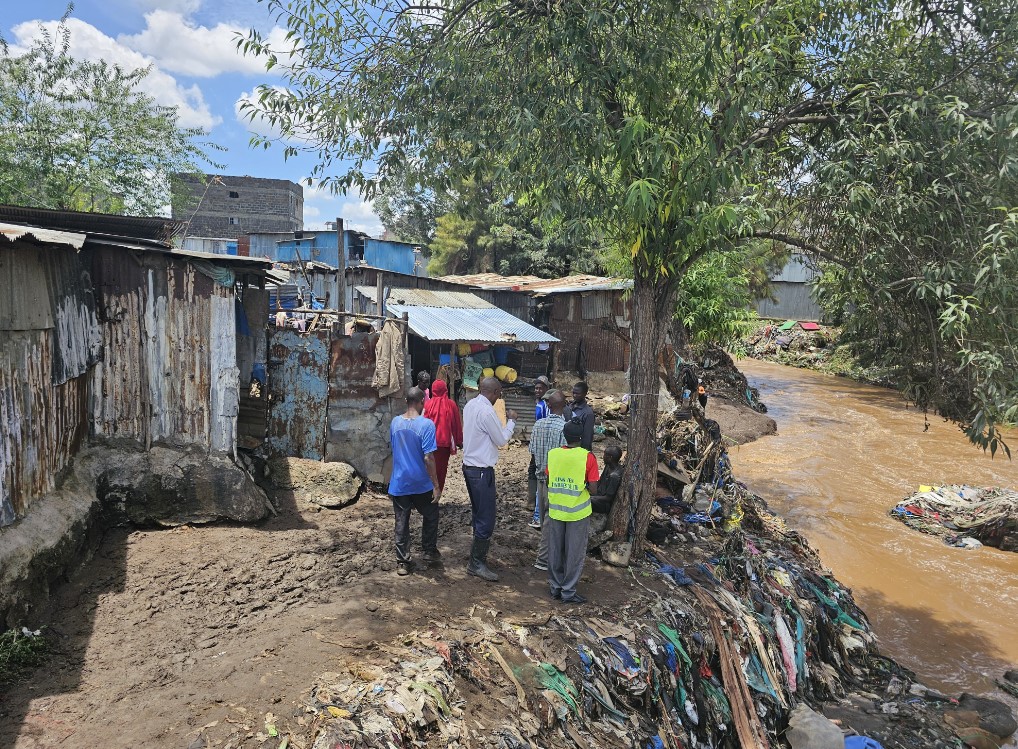 Kitui Village residents in Kamukunji assess damages caused by flash floods on March 24, 2024. (Photo: The Eastleigh Voice)
Kitui Village residents in Kamukunji assess damages caused by flash floods on March 24, 2024. (Photo: The Eastleigh Voice)Kitui Village residents in Kamukunji assess damages caused by flash floods on Sunday, March 24, 2024. (Photo: Eastleigh Voice)
Mental Health and unemployment
A stroll through various neighbourhoods in Majengo, Mathare, and Shauri Moyo reveals that many young people are still stranded in the slums months after the floods, lacking both jobs and homes. For a significant number, falling into drugs has become a coping mechanism to deal with their challenging reality.
Natural disasters, such as floods and landslides, often force many young people from their homes, leading to profound feelings of loss, grief, and instability. This displacement disrupts their education and jobs, exacerbating health and mental health issues.
Recent data highlights concerning declines in the mental health of young people, with increases in depression, anxiety, and overall psychological distress.
A report published by The Lancet calls for scaling up existing evidence-based solutions, stressing that mental illnesses contribute significantly to increased disability and lead to substantial losses in human potential and productivity throughout life.
Currently, mental illness accounts for 45% of the overall disease burden among individuals aged 10 to 24. Yet only 2% of global health budgets are allocated to mental health care.
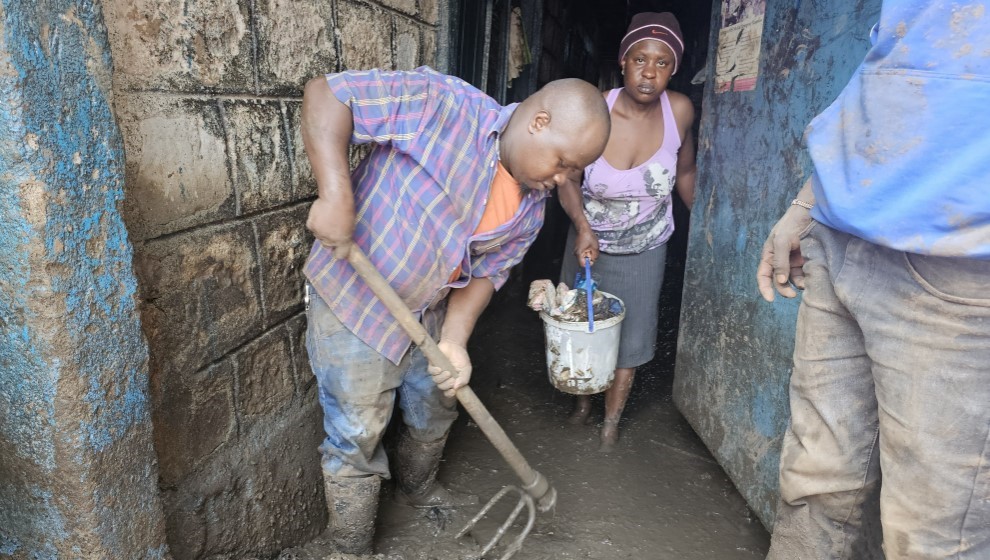 A resident of Kitui village in Kamukunji, cleans mud and dirt from his house following flash floods on Sunday night, March 24, 2024. (Photo: Eastleigh Voice)
A resident of Kitui village in Kamukunji, cleans mud and dirt from his house following flash floods on Sunday night, March 24, 2024. (Photo: Eastleigh Voice)A resident of Kitui village in Kamukunji, cleans mud and dirt from his house following flash floods on Sunday night, March 24, 2024. (Photo: Eastleigh Voice)
Climate change effects
The uncertainty and fear associated with climate change heighten anxiety among young people, who worry about their future, the stability of their communities, job prospects, and the overall health of the planet.
Climate change disproportionately impacts vulnerable populations, particularly low-income communities and those in developing countries. Focusing on health ensures these groups receive the necessary support and resources.
As the world prepares for COP29, Kenya has witnessed significant community impacts from droughts, landslides, and floods. These challenges affect not only those in rural areas but also marginalised groups in urban slums, including women and youth who have lost jobs and even lives.
Fred Ouma, the lead negotiator for transparency, spoke at a recent event organised by the Young Women’s Christian Association (YWCA) under the Voices of Just Climate Action initiative in partnership with Hivos. He emphasised the urgent need for awareness and representation of marginalised African youth, women, and other communities in policymaking discussions to achieve better outcomes.
The YWCA convened young people to develop recommendations for the government and policymakers on how to better incorporate these voices and address the challenges faced by often-overlooked groups, despite their significant presence.
“Every agreement is negotiated based on personal interests, which is why clarity is crucial when discussing the impacts of climate change. It’s essential to consider the interests of marginalised communities; without clarity, some of these issues may not be adequately addressed.”
Ouma emphasised the vital role that civil societies and young people play in amplifying the voices of youth and women and advocating for better outcomes. He highlighted the need for clarity and access to accurate information to negotiate effectively for policies that support young people and marginalised groups.
“Civil societies need to understand the unique needs of these communities and advocate for their inclusion at every level of policymaking,” Ouma asserted.
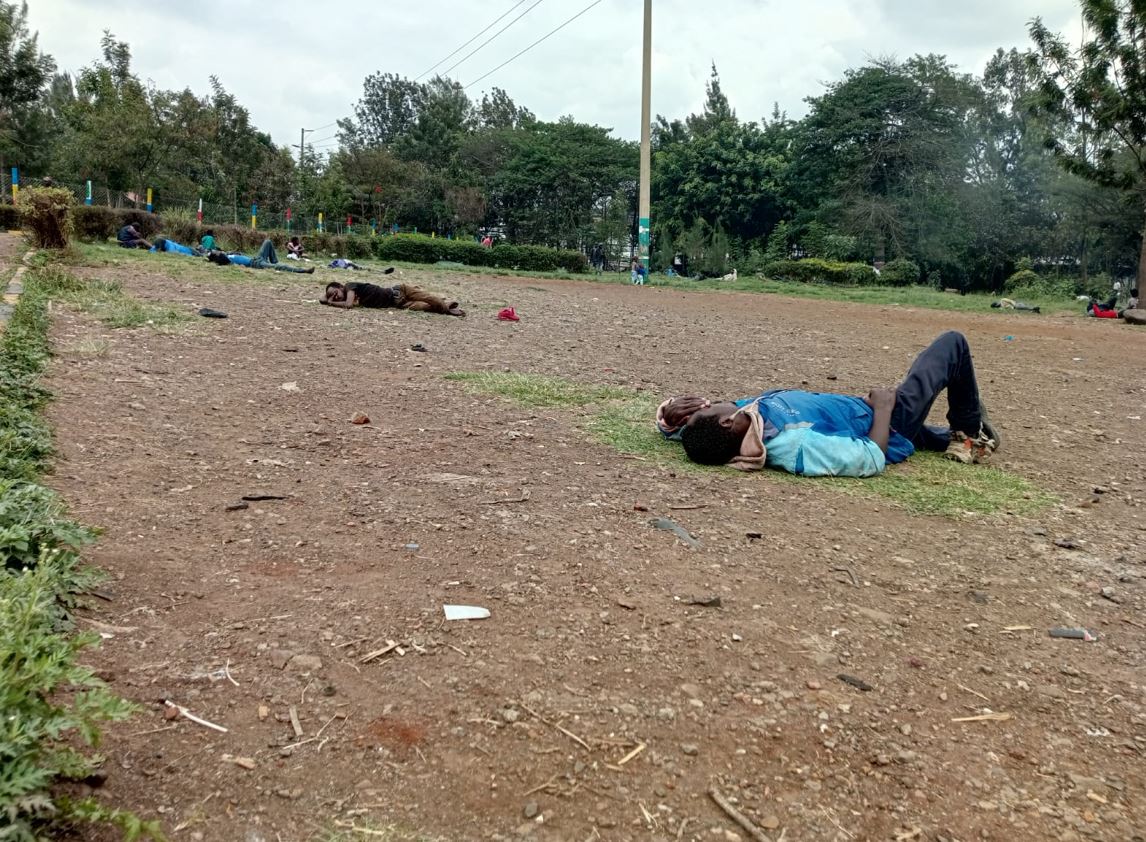 A struggling youth rests at Kamukunji Grounds, in Kamukunji Constituency. (Photo: Ahmed Shafat)
A struggling youth rests at Kamukunji Grounds, in Kamukunji Constituency. (Photo: Ahmed Shafat)A struggling youth rests at Kamukunji Grounds, in Kamukunji Constituency. (Photo: Ahmed Shafat)
Health as a major theme in the COP29
Health is a major theme in the COP29 discussions among youths, recognising the vital link between climate change and public health.
Young people are particularly vocal about the need for health issues to be addressed, including the impacts of climate-related events on mental health, increased mortality from extreme weather, and disruptions to food security.
They are advocating for comprehensive health strategies that specifically cater to the needs of vulnerable populations, ensuring that their voices are heard in climate policies and that effective responses to these pressing challenges are implemented.
The Intergovernmental Panel on Climate Change's (IPCC) Sixth Assessment Report (AR6) highlights that climate risks are escalating more rapidly than anticipated, complicating adaptation efforts.
Approximately 3.6 billion people live in highly vulnerable areas, particularly low-income countries and small island developing states (SIDS), which experience the most severe health impacts despite their minimal contribution to global emissions.
The death rate from extreme weather events in vulnerable regions has been 15 times higher than in less vulnerable areas over the past decade.
Additionally, climate change poses significant health threats through increased mortality from extreme weather and disruptions to food systems. Projections suggest that around 1.2 billion people could be displaced in the next 30 years, and by 2050, at least 141 countries will face at least one ecological threat.
Top Stories Today
